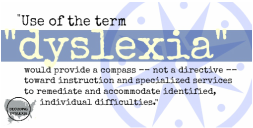
There is an elephant in classrooms across Maryland. The elephant is dyslexia: how and when to identify dyslexia, how to apply an individualized intervention, and who (if anyone) is trained to teach the foundations of reading in a systematic and structured way.
Decoding Dyslexia Maryland asked the Maryland State Department of Education (MSDE) to ensure that local education agencies (school districts) do not have policies, procedures and/or practices that prohibit IEP teams from identifying and developing IEPS for dyslexia, dyscalculia and dysgraphia. If you have a student with an IEP, you may have experienced school staff/teachers/administrators who whisper about dyslexia in the hallway, but refuse to say dyslexia at the IEP table.
No matter what the reasons for this refusal, the US Department of Education recently issued a Guidance Letter/Dear Colleague that makes it clear: It's okay to use these terms, to discuss relevant solutions, to get training in dyslexia. And why not? There is every reason to address the elephant in the room so that all parties are on the same page, with the same resources that point to well-researched solutions!
This recent US DOE Guidance letter should be added to your child's file - attach a letter asking that the guidance remain in the file. Use the guidance to point out that your child's teacher should have knowledge about dyslexia and how to teach using evidenced based practices to address dyslexia. You can ask 1) which evidence-based practices the team will use to close the reading gap and 2) the level of training the teachers have in the knowledge and practices known to successfully address dyslexia and reading disability. A knowledgeable teacher is the key to success versus any one specific program, but the program does matter because many lack efficacy for students with dyslexia.
If you've recently had an IEP meeting and your school team refused to identify and provide intervention for dyslexia (reading issues), dysgraphia (writing issues) and dyscalculia (math concept issues), please use these resources to educate your school district so that you can successfully get your child a program and teacher trained to work with a student with dyslexia. (NOTE: If your student has indicators and/or characteristics of dyslexia, this guidance applies -- if your student's IEP team does not agree that your student has indicators and/or characteristics of dyslexia, but you think your student has dyslexia, you may need to get an independent evaluation. Not all students have dyslexia, so it's best to know as much as possible about your student's underlying reading difficulties.)
FIRST: write a letter or email to your district superintendent and director of special education and ask them to read, distribute and act on the Department of Education Guidance on Dyslexia. Model your letter after the one DDMD wrote to Dr. Smith, Interim State Superintendent of Education in Maryland, linked below.
Dr. Smith, in his reply dated January 21, 2016, says: 1) The OSERS guidance has been reviewed in detail by leadership at the MSDE 2) [The guidance] was delivered to each local school system and public agency 3) [The guidance] was discussed with statewide leadership at the Professional Learning Institute on December 9, 2015.
It further states that MSDE has also "been engaged in substantive regional work with local leaders in general and special education, classroom teachers and service providers," and that MSDE anticipates "that the direction provided in the OSERS Guidance will provide a clear focus to our conversations to include dyslexia, dyscalculia, and dysgraphia in both general education and special education settings."
When you draft an email to your district superintendent and special education director, ask yourself: have any of these things happened in my IEP meetings? In evaluative meetings for a 504? If they have, please thank your district leadership for reaching out and educating both special education and general education staff on the guidance. If you find that these things still are not discussed and that you hit a wall when suggesting prescriptive interventions for your student, please provide your district leadership with the guidelines and letters posted below and ask that they ensure that there are no "policies, procedures and/or practices" that prohibit use or implementation of strategies designed to support students with dyslexia, dyscalculia and/or dysgraphia.
- DOE Guidance Letter, October 2015
- DDMD Guidance Summary, November 2015
- Letter to Maryland State Superintendent, Dr. Smith, November 2015
- Dr. Smith's Response to DDMD's Letter, January 2016
SECOND: attend your district Board of Education meeting and reserve three minutes to speak. Summarize the DOE guidance and ask your BOE to take action. You can suggest the following to you BOE and your district special education director:
Short Term Goals
- Circulate a guidance to all school IEP, PST, and evaluation teams including RTI, based on the Decoding Dyslexia Guidance Summary
- Ensure the Department of Education guidance is available to all LEAs and parents electronically -- link on the district website
- Compile a Q&A for parents, teachers and other personnel answering frequently asked questions
- Encourage MSDE to work with the State Special Education Advisory Committee and county-based special education advisory committees to offer workshops or training on the guidance
- Request your district to create training on the guidance, particularly for their Special Education Supervisors, staff, teachers and IEP chairs. Ensure that all parties who participate in IEPs understand the guidance.
- Request that all staff, listed in #5, watch the interview with Assistant Secretary Michael Yudin, linked here and embedded at the beginning of this post.
- Ask your district to request that MSDE offer professional development on dyslexia and the guidance through options like EdCamp, MSDE Virtual Learning Webinars and other training options.
- Request that your district create a dyslexia point of contact in the district who is willing to work with parents and teachers and collect feedback from stakeholders regarding implementation of the DOE guidance in your school district.
-
Update the Technical Assistance Guidance on SLD to:
- include dyslexia
- define all SLDs listed in the guidance, particularly dyslexia, dyscalculia and dysgraphia
- provide resources for MTSS/RTI and IEP teams on “what is an effective intervention” in the TAG
- provide monitoring and follow up to ensure the guidance is followed over time
- require reporting for the SLD categories to inform identification practices
- Effective, Evidence-Proven Reading Interventions: Request that MSDE work with the Center for Effective Reading Instruction (in our own backyard!) to develop effective reading intervention options that are individually prescriptive and diagnostic for struggling students.
- Professional Development: Until more in-depth recommendations are presented by the Dyslexia Task Force, MSDE should provide options for a statewide webinar or professional development course on dyslexia: signs, symptoms, effective instruction and accommodations.
If your IEP or 504 team refuses to say dyslexia, dysgraphia, dyscalculia and/or you have difficulty securing help for your struggling reader, please contact Decoding Dyslexia Maryland and tell us about the problem you face at DecodingDyslexiaMD@gmail.com.
Thank you and Good Luck!
Resources
It's Fine for Districts to Say Dyslexia, EdWeek
Letter to DOE from House Dyslexia Caucus
Answering Your Questions About the New Government Letter on Dyslexia, Dysgraphia and Dyscalculia (NCLD)
Due Diligence for Students with Dyslexia, Scholastic
US Department of Education Issues Guidance on Dyslexia, Learning Ally
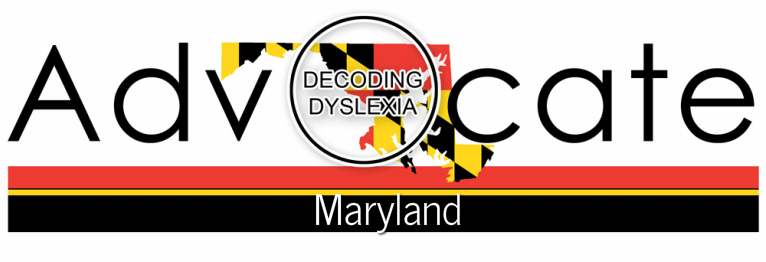
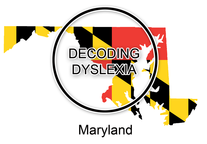

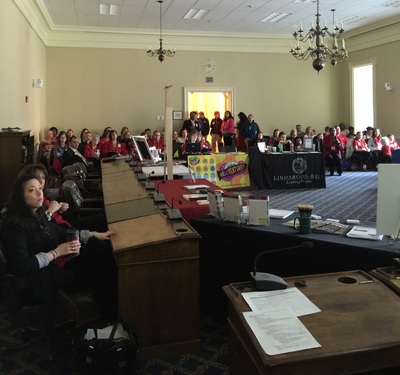
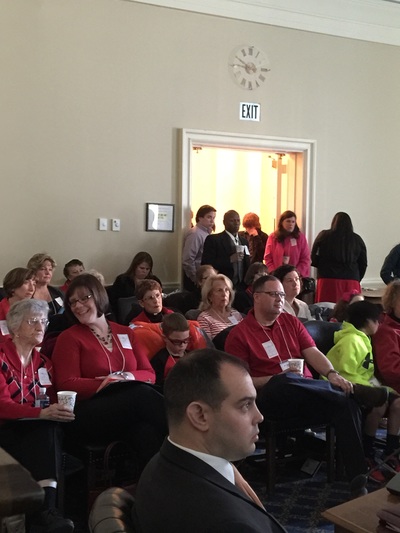
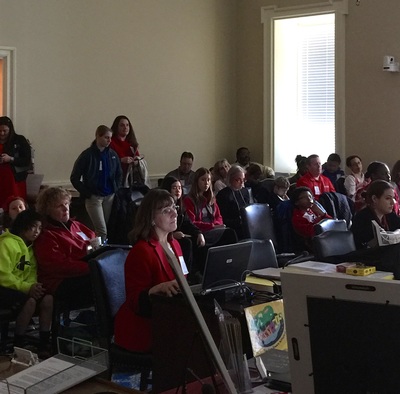

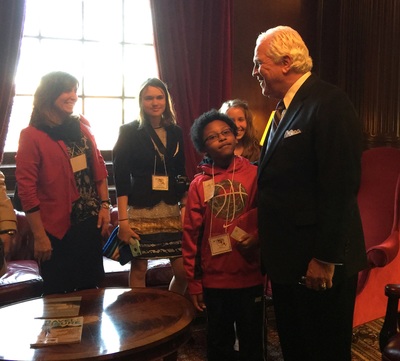
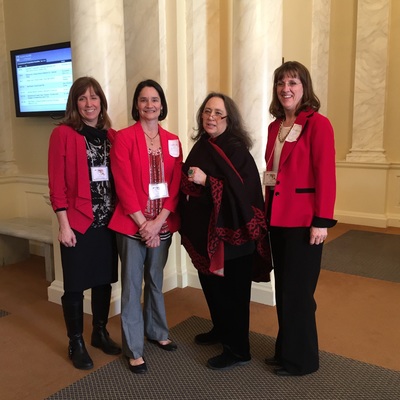
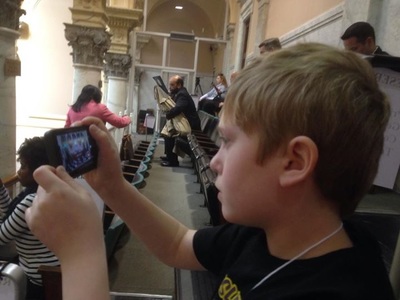
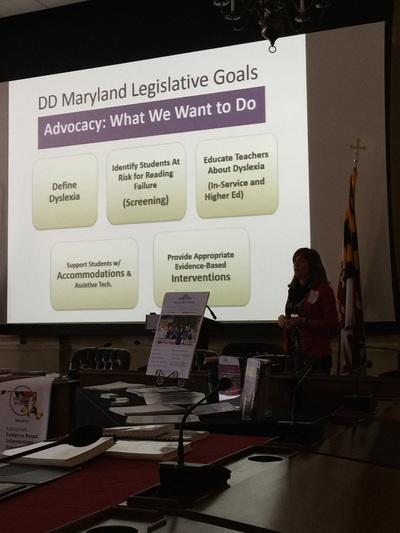
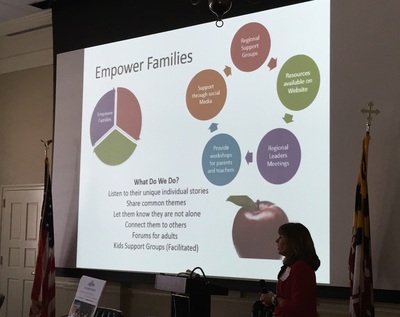
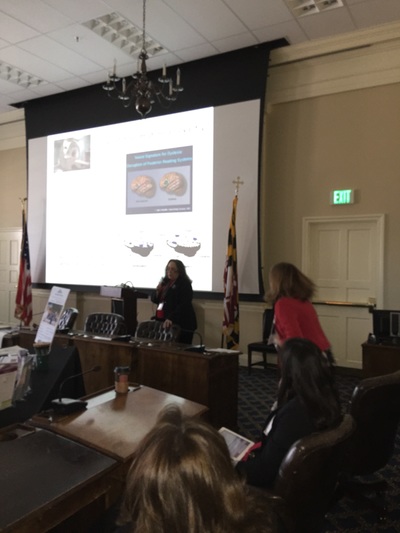
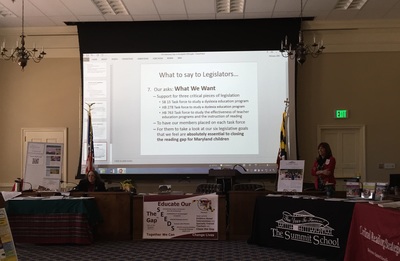
 RSS Feed
RSS Feed